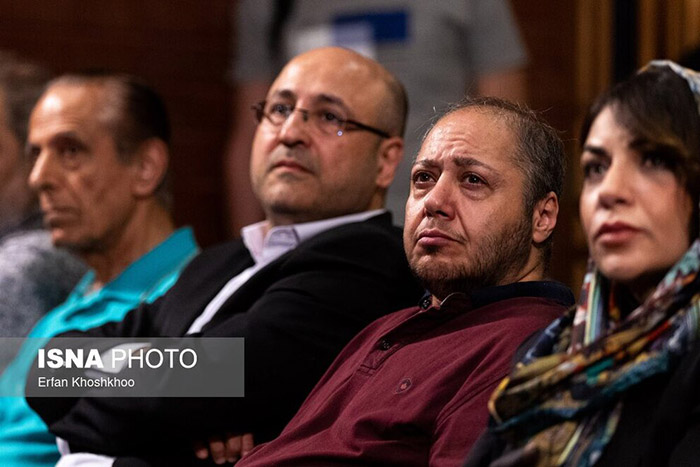What distinguished Adineh as a teacher was her emphasis on discipline, voice work, and textual analysis — all elements derived from her deep appreciation for literary theater. She emphasized the importance of understanding context and motivation, encouraging young actors to think critically about their roles.
Her directorial portfolio includes some of the most intellectually demanding works of contemporary Persian theater. She directed Bahram Bayzai’s The Death of Yazdgerd in 1991, staging it at the 10th Fajr Theater Festival alongside other noted productions of the time. The play, a dense meditation on power, justice, and fate, remains one of her most important theatrical accomplishments. Other directorial efforts, such as Sultan Mar, A Night in Tehran, and Perde Khaneh, show a consistent engagement with Persian history and sociopolitical themes.
Defiance and Dignity: The 1401 Protest Gesture
In the midst of rising social tensions in Iran, Golab Adineh made headlines not for a role or award, but for a powerful act of protest. On 15 Azar 1401 (December 6, 2022), following a performance of Perde Khaneh, she appeared on stage without the mandatory hijab. Photographs circulated widely online of her posing with audience members outside the theater — smiling, radiant, and defiantly unveiled.
This gesture, occurring during the Khizesh 1401 protests following the death of Mahsa Amini, was interpreted as a symbolic alignment with the movement for women’s rights and civil liberties. While many prominent figures chose silence, Adineh’s action spoke volumes about her integrity and courage.
It was a culmination of years spent portraying strong, thoughtful women on stage — now manifested in real life. For many, it was yet another reason to celebrate her at the 20th Iranian Theater Directors’ Night.
The 20th Iranian Theater Directors’ Night: Honoring a Legacy
The tribute event in May 2023 was not only a celebration of Golab Adineh’s individual legacy but also a broader recognition of the Iranian theater tradition. Alongside Adineh, six other directors were honored for their lifetime contributions. The program included clips from early performances, speeches by protégés, and readings from plays that had left a cultural mark.

